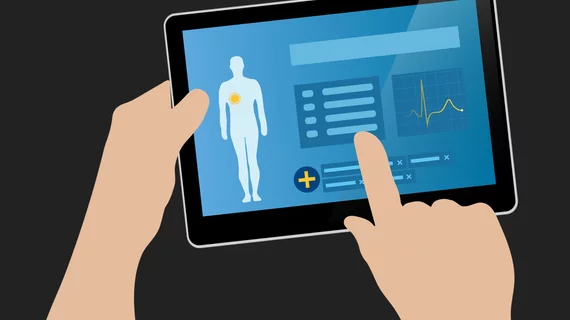A new KLAS Arch Collaborative report offers insight into healthcare providers’ satisfaction with their experience using electronic health records, revealing that opinions of EHR use remain conflicted between specialties.
Gone are the days of rooms filled from floor to ceiling with patients’ paper medical records. Since the arrival of the “paperless” era, electronic health records (EHRs) have become an integral part of the healthcare system, with both compliance metrics and reimbursement rates hinging on appropriate EHR use. And although clinicians across the board are obliged to comply, not everyone reveres the use of such technology.
The latest EHR satisfaction report from KLAS reflects the disharmony.
For example, ophthalmologists and orthopedists rate their EHR experiences at only 8.4 and 11.2 points on a 100-point scale. By contrast, those working in hospital medicine and pediatrics report much better experiences, with ratings of 38.8 and 31.1.
How do radiologists feel about EHRs?
Radiologists’ experiences fell close to the middle tier of the 26-specialty KLAS study, with an average rating of 20.3 based on responses from 1,528 physicians. While radiologists held EHRs in higher regard than many of their peers, the report data indicate that needs specific to radiology are not met by many EHR systems.
Of note, additional insight from the report suggests that clinicians who receive specialty-specific workflow training are 24 times more likely to agree that the EHR meets their functionality needs. This notion is further supported by survey data indicating EHR satisfaction is more user/specialty-specific rather than EHR-specific.
Additional data from the Exploring EHR Satisfaction by Provider Specialty report can be found here.

